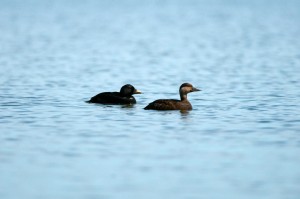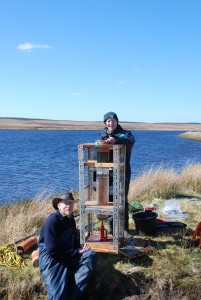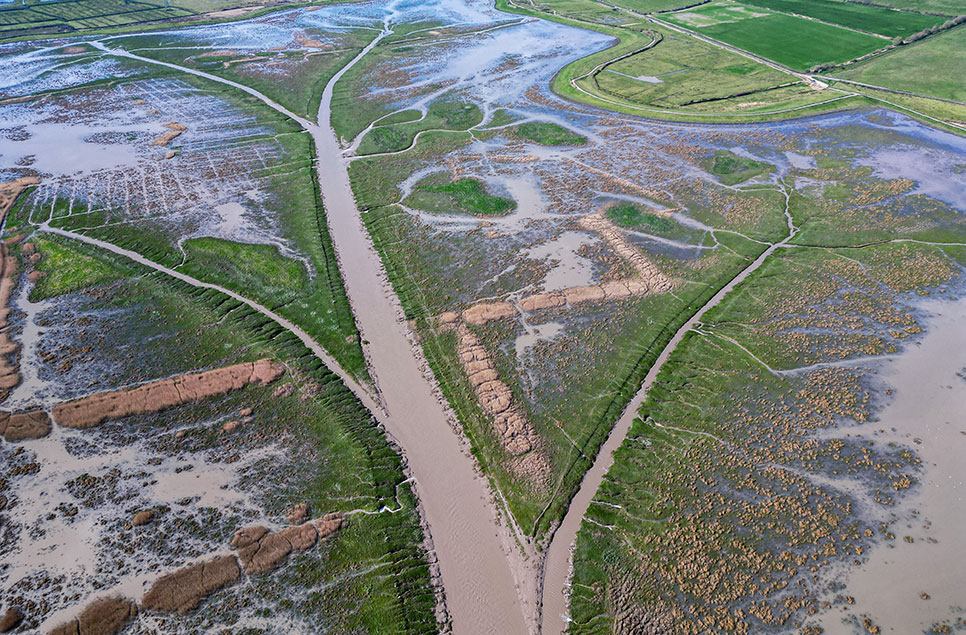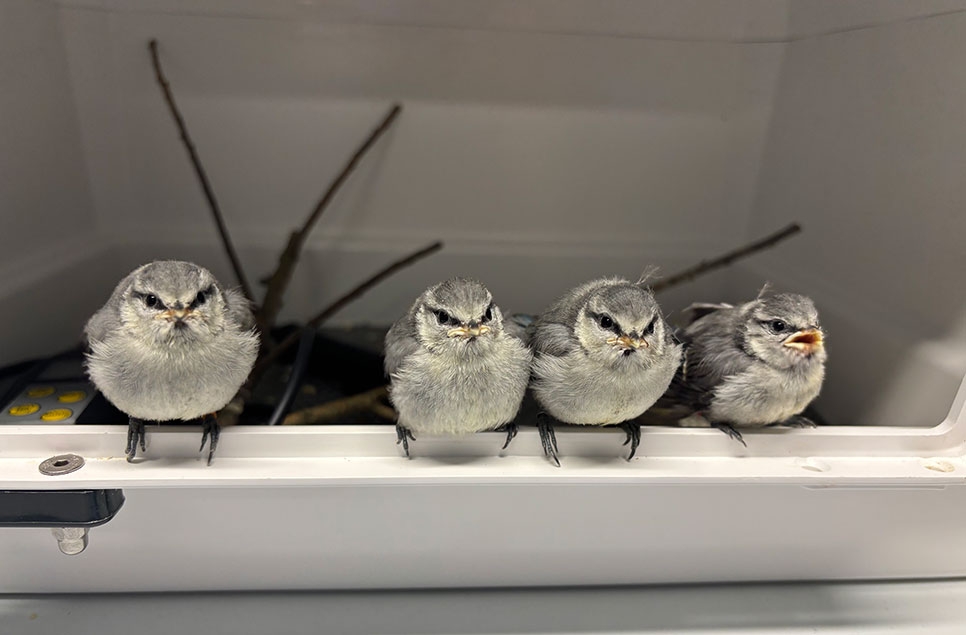Disappearing duck could be helped by anglers

The case of a disappearing duck – the common scoter – has puzzled WWT researchers and their partners, but new findings indicate that a decline in angling might have lead to trout eating their main food source.
The number of common scoters that breed in the UK has dwindled and conservationists have been unable to pinpoint why. There is plenty of seemingly suitable habitat in Scotland, yet they breed at only a handful of places, which has prompted concern that they might become extinct locally.
WWT, RSPB, Scottish Natural Heritage and The Conservation Volunteers embarked on a three year research project which has concluded that the birds could be helped by restoring balance between them, fish and the freshwater insects that they both eat. In some places, reviving angling could be a way to do this.

WWT researcher Hannah Robson said:
“Scoters are amazing birds: an arctic species finding a haven in remote Scottish lochs. This research points to the ways in which we might be able to save them as a fascinating part of our Scottish wildlife heritage.”
RSPB’s Dr Mark Hancock said:
“Of all the lochs we investigated during this work, scoters bred most often at those with the shallowest water and the most large, freshwater invertebrates. It soon became clear that there were more insects where there were fewer brown trout, so it looks like scoters are being limited by a lack of food in places where the fish are eating it all.”
“We're now using these results to design new ways of helping scoters. For example, in areas of the north Highlands where angling activity has dropped off and fish numbers have increased, more trout angling is potentially one way to boost freshwater insect life. At hydro lochs, where water levels are to some extent under human control, we could also aim to maximise the area of shallow water.”
SNH’s Dr Andy Douse said:
"Scotland is the only part of the UK to have breeding scoters, many of which nest in legally-protected nature conservation sites. This study highlights promising management options for restoring populations of this declining species."
TCV’s John McFarlane said:
“TCV is delighted to have been part of this exciting project. Working with partners like RSPB Scotland and WWT allowed our Natural Talent Apprentice Hannah Robson to really fine-tune her taxonomy skills. All of which helps to inject new fresh blood into aquatic conservation.”



